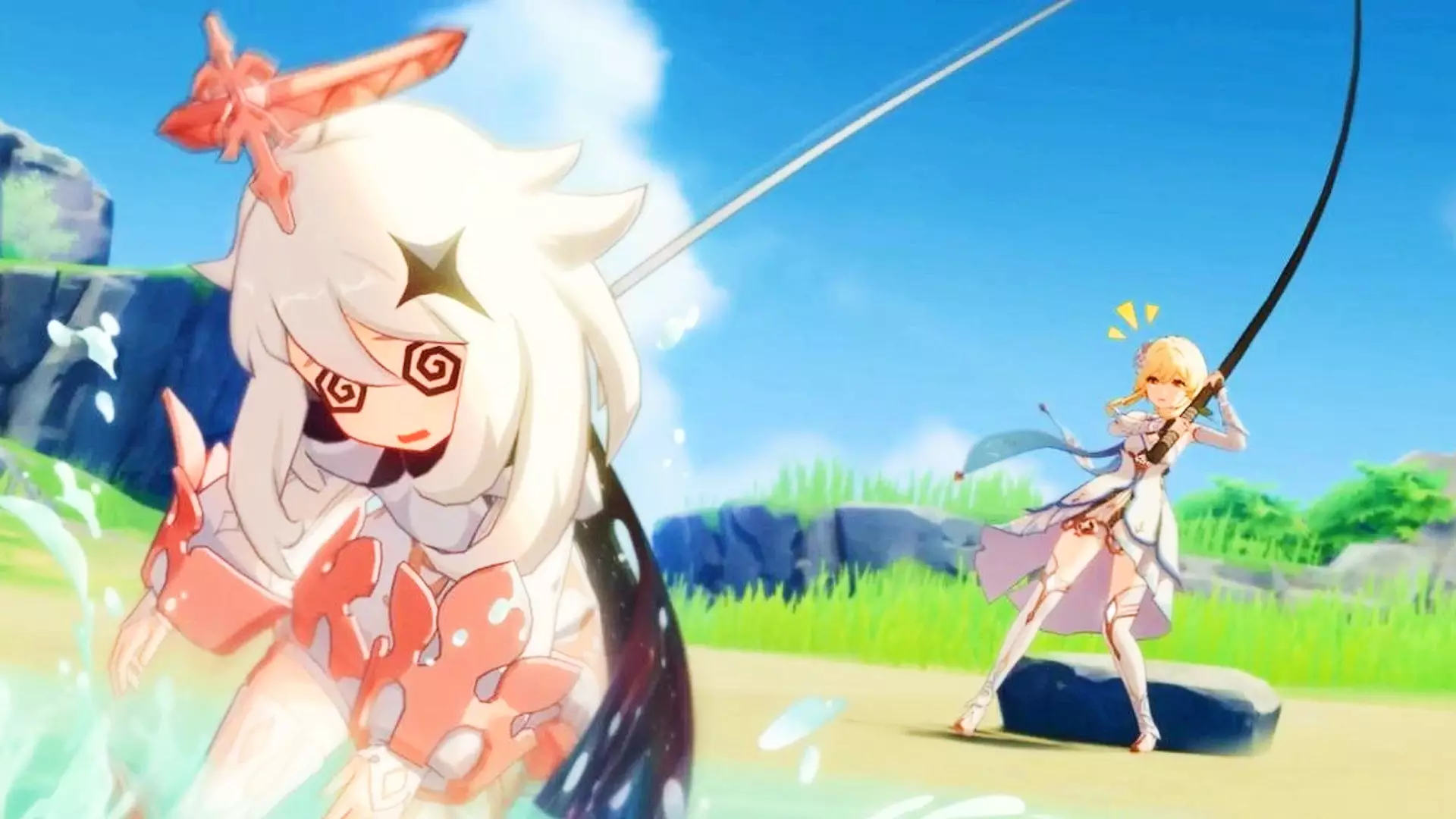The gaming community is no stranger to change, but Genshin Impact’s latest update, version 5.7, has brought a notable shift that’s not just about gameplay mechanics or new characters. This time, it focuses on the auditory experience of two iconic figures within the game: Paimon and Keqing. While new five-star character Skirk is certainly generating buzz, the recasting of Paimon and Keqing’s English voice actors stands out as a pivotal decision that many gamers are dissecting. After nearly five years since their inception, the shift represents a broader narrative, one that speaks to the evolution of gaming culture, voice acting dynamics, and audience expectations.
Paimon: A Symbol of Change
Paimon, the game’s lovable mascot and constant companion to players, has long been a subject of both adoration and criticism. As the character who typically imparts crucial information, Paimon has amassed an extensive dialogue history, leading many players to form strong opinions about her voicework. The recent announcement from HoYoverse detailing that her voice would transition to a new direction has stirred excitement but also trepidation; it’s not just a voice-change, but a chance to redefine a character that has become emblematic of the Genshin Impact universe.
Player reactions have begun to flood in, particularly after a sneak peek of the new voice was shared by content creators. Many remarks highlight how the new voice feels softer and deeper, which may well transform Paimon’s reputation among the community. The previous voice, delivered by Corina Boettger, while initially praised, came under scrutiny over the years as Paimon’s voice became sharper and less appealing to a segment of the player base. In contrast, the new portrayal appears to be aural rehabilitation, catering more closely to the softer tones that many had migrated towards in non-English versions of the game.
Keqing: The Integrated Evolution
While Paimon garners the spotlight, Keqing is another figure stepping into the limelight with this update. Known for her commitment to the Liyue region and her striking design, she has garnered a dedicated fanbase. This change, albeit less prominent than Paimon’s, also marks a continuous shift in the game’s overall auditory landscape. Keqing’s past performances have contributed to her unique appeal, but just like Paimon, her voice will soon be interpreted differently—highlighting the developers’ response to their audience’s desires for consistent quality and representation.
Much like Paimon, Keqing’s updated voice will only apply to new content in this patch, while existing dialogue will unfold over future updates. This staggered approach underscores the meticulous nature of character development within Genshin Impact, allowing for a smoother transition while still honoring the game’s rich history.
The Bigger Picture: Voice Acting in Gaming
The choice to recast such beloved characters is indicative of a larger dialogue within the gaming industry surrounding voice actor representation and recognition. Following the SAG-AFTRA strikes, the reality of player demands for unionized representation in video game voice acting has become increasingly pertinent. Many industry experts and fans alike have started advocating for a voice talent pool that operates under fair conditions, a sentiment that resonates deeply in the current sociopolitical climate. HoYoverse’s move to replace its voice actors, including the high-profile case of Paimon, has undoubtedly raised eyebrows but also reflects a potential shift toward better compensation and treatment of talent.
While the immediate focus remains on the character transitions, the aftermath of these changes extends far beyond simple dialogue lines. They speak to the emotions players attach to these characters and the experiences they create through gameplay. Engaged fans not only invest in gameplay but also in storytelling, and dialogues play a crucial role in preserving the narrative’s heart.
Player Perspectives: A Community Divided
As passionately as many players have embraced the change, there’s still a segment that feels wary. The stronghold of vocal tradition is something that must be delicately navigated. Players have voiced their sentiments on forums and social media, weighing in on whether this evolution is a natural progression or a digression from what made these characters resonate deeply. Their nostalgic ties may indeed influence how the new performances are received.
One could argue, however, that these changes aim to mediate the different cultural interpretations of Paimon and Keqing. With voices that resonate more closely to performances in origination languages such as Mandarin and Japanese, the developers appear intent on honoring regional representations and sensitivities. This not only has implications for voice acting but speaks volumes about cross-cultural appreciation in global video games.
As Genshin Impact continues its journey, the conversation surrounding voice acting may well shape not just the game’s future but the industry’s standards at large.


Leave a Reply